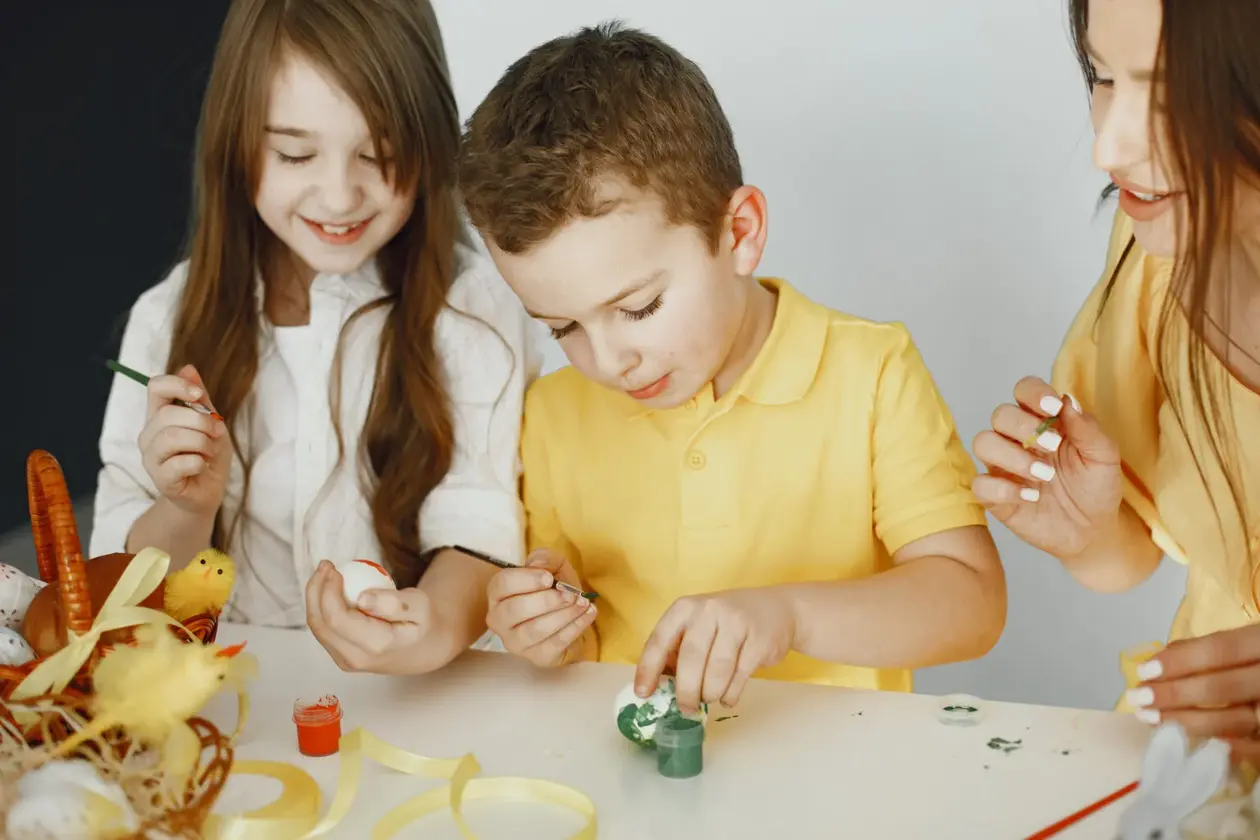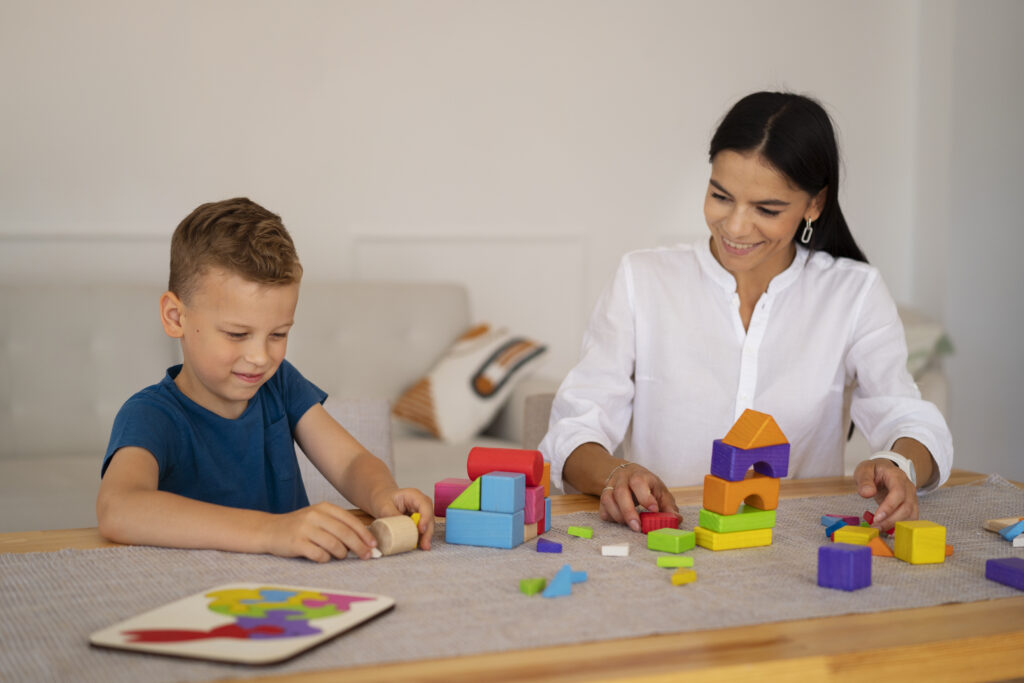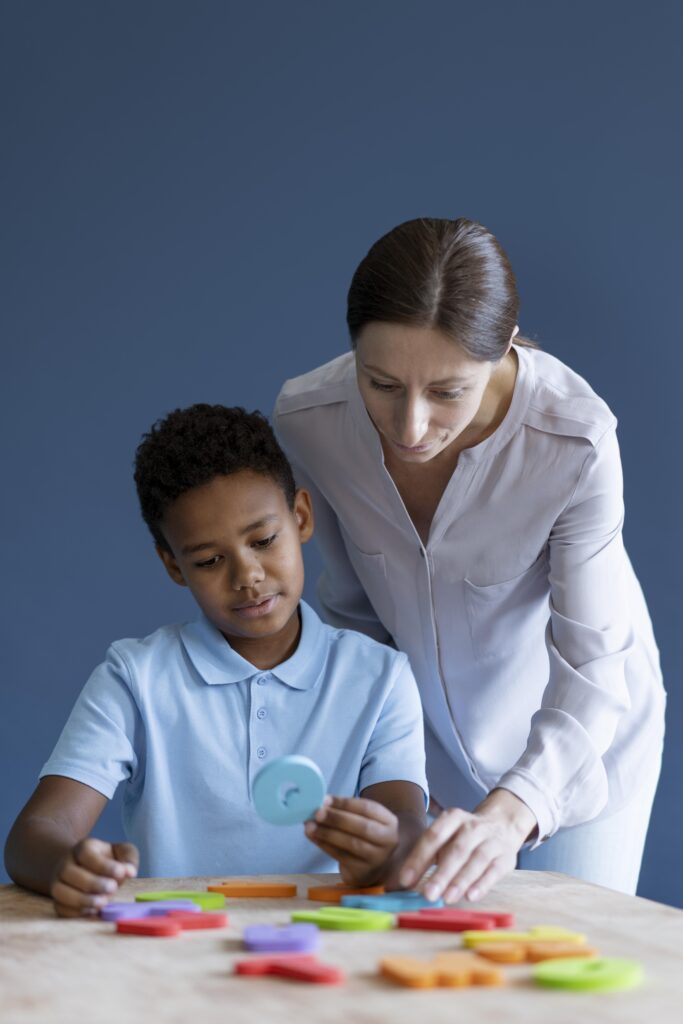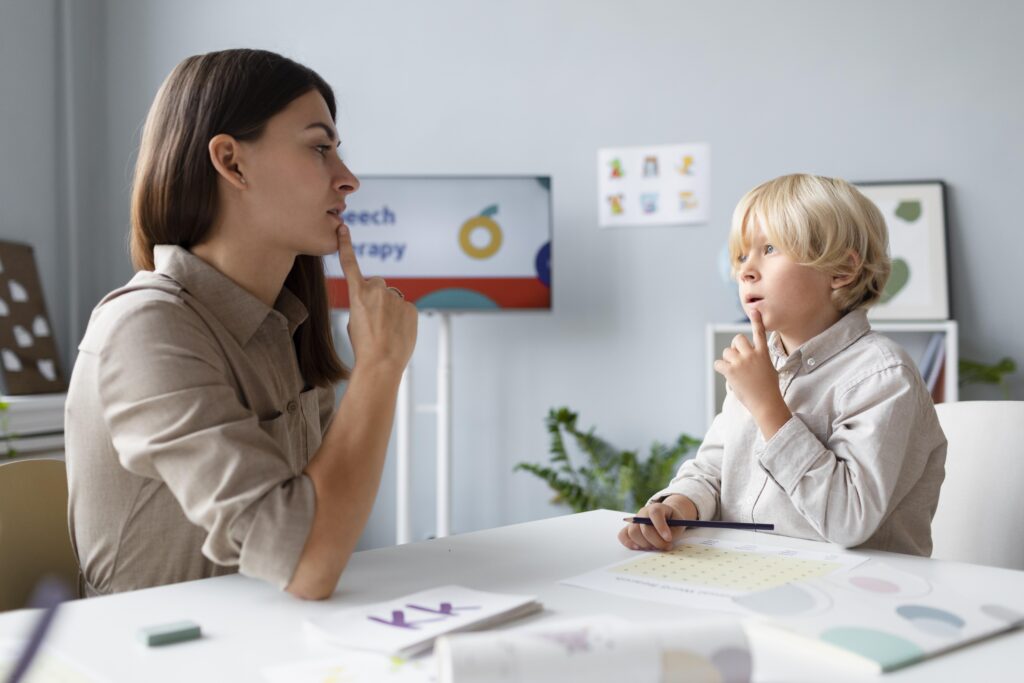You’ve probably seen it: your child standing near a group of children at the park, maybe holding a toy or ball, wanting to join in—but just… watching. Not quite sure how. Maybe they try once and get ignored. Maybe they don’t try at all. As a parent or teacher, that moment hits you right in …
You’ve probably seen it: your child standing near a group of children at the park, maybe holding a toy or ball, wanting to join in—but just… watching. Not quite sure how. Maybe they try once and get ignored. Maybe they don’t try at all.
As a parent or teacher, that moment hits you right in the heart. It raises the big question: How can I help my child build real social skills—the kind that lead to friendships, confidence, and connection?
You’re not alone. Helping children grow socially is one of the most important things we can do, and there’s good news: it’s totally teachable.
So, What Are Social Skills?
You know how we all have those unseen tools for dealing with people? Those are social skills—they help us make friends, sort out problems, and just feel comfortable in a crowd. For younger children, say around age 6, these tools usually involve:
- Knowing how to join a game without interrupting.
- Saying “sorry” and meaning it.
- Understanding when someone’s joking and when they’re not.
- Taking turns without a meltdown.
- Recognizing a friend is sad, and asking why.
Some children pick this stuff up quickly. Others? They need a bit more help, and that’s perfectly normal.
Three Ways to Help Kids Build Social Confidence
Whether you’re a parent, grandparent, teacher, or coach, you’ve got influence. Let’s talk about the three ways you can help a child improve their social skills, gently and effectively.
1. Show Them What It Looks Like
Children copy what they see. Always have, always will. If you’re kind and patient during a disagreement, they notice. If you say “please” and “thanks,” they do too—even if it takes a while to show.
- For Parents: Narrate your day. “I had a hard talk with my boss, but I stayed calm and listened. It helped.” These little comments teach more than you think.
- For teachers: Try setting up buddy systems, giving out small group tasks, or even just organizing some cooperative lunchtime games. Look, not every child’s going to dive right in by themselves. Creating that perfect environment would change everything.
2. Give Them Time to Practice
Think of social skills like soccer or spelling—children need chances to try them out, not just hear about them.
- For Parents: Set up simple playdates—one friend at a time is often best for younger kids. Don’t hover, but stay close enough to support if something tricky comes up.
- For Teachers: Use buddy systems, small group tasks, or even lunchtime games that encourage cooperation. Not all children will jump in on their own, but the right environment makes a huge difference.
Talk it through afterwards. Ask things like, “What was fun?” or “Was anything hard?” You’ll be surprised at what they share.
3. Teach It Like You Teach Reading
Yes — social skills can be taught directly! For some children, they don’t come naturally, and that’s okay.
- Use books, roleplay, and stories. Pretend you’re at recess. Practice asking, “Can I play too?” or responding to “I had it first!”
- Point out facial expressions. “Look at his eyebrows — do you think he’s mad or confused?”
Teachers, try social scripts, visual cues, or feeling charts. Many children, especially those struggling with ADHD or those who are on the autism spectrum, thrive with structure. Don’t forget how powerful short, calm praises can be: “I noticed how you waited your turn—that was awesome.”
When Extra Help Makes a Big Difference
If your child keeps struggling—they’re not just shy, but really unsure how to talk with peers or handle emotions—that’ where social skills groups for children come in.
These small group sessions are led by experienced professionals who specialize in teaching children the “how” behind friendships.
Children learn things like
- How to approach someone new.
- What to say when you disagree.
- How to handle teasing.
- How to keep a conversation going.
- What to do when you feel left out.
The setting is structured but warm. It’s not school, and it’s not therapy in the traditional sense — it’s more like a safe, encouraging space where children can practice real stuff with others who are also learning.
What is the best part? They see they’re not the only ones figuring this out.
Why It’s Worth the Effort
Teaching children social skills isn’t just about helping them “fit in.” It’s about helping them feel comfortable in their own skin. It’s about making school mornings less stressful. Birthday parties are more fun. Group projects are a little smoother. Honestly, it’s about giving them tools that will help them for life.
Want Support That Feels Like a Partner?
At Extra Steps, we know how hard it can be to watch your child struggle socially. We also know that change is possible. Our social skill groups are designed to meet children where they are—with empathy, patience, and real-world strategies.
If you’ve been wondering how to develop social skills in a child who just doesn’t seem to “get it” yet, we’re here to help.
Contact Extra Steps today. We’d love to meet your child, listen to your concerns, and create a plan that makes sense for your family.
Let’s take those first steps together.




